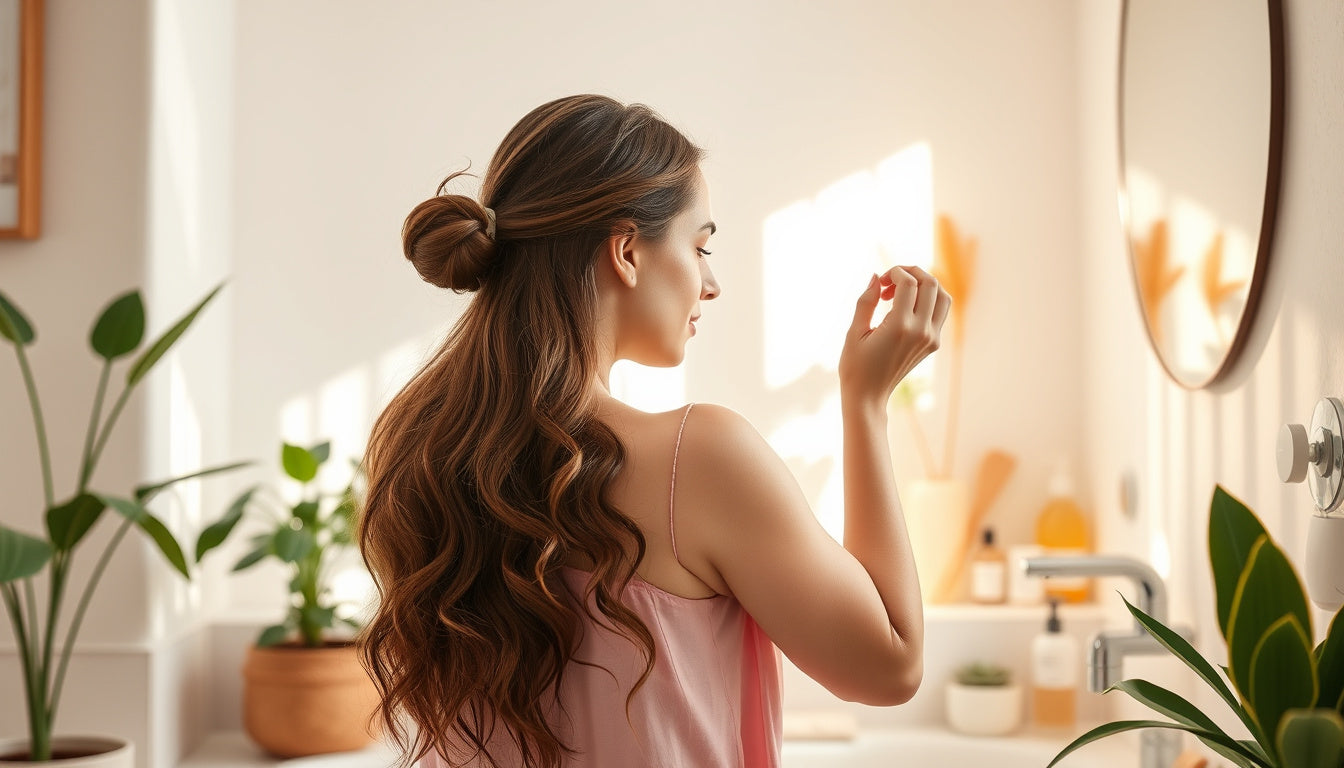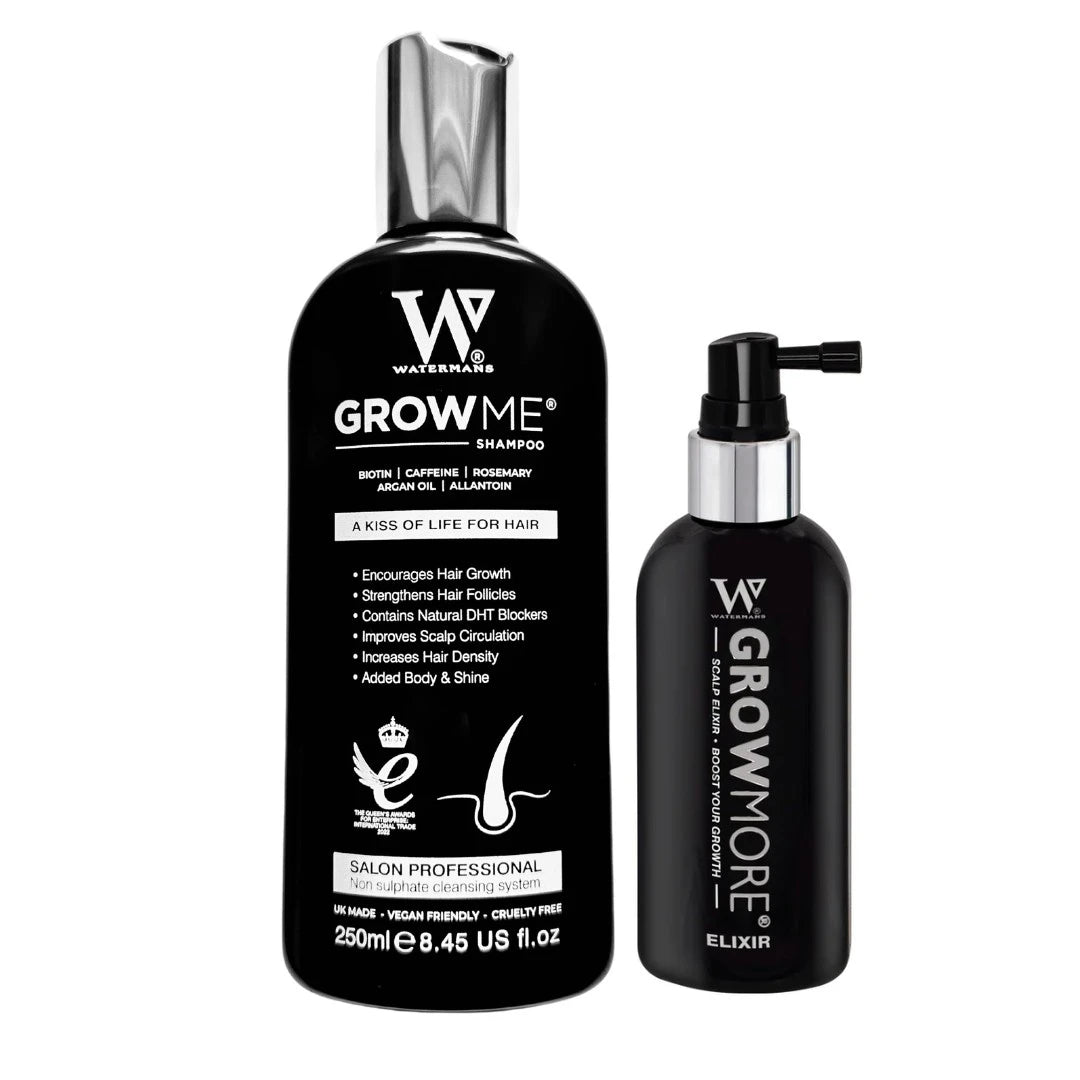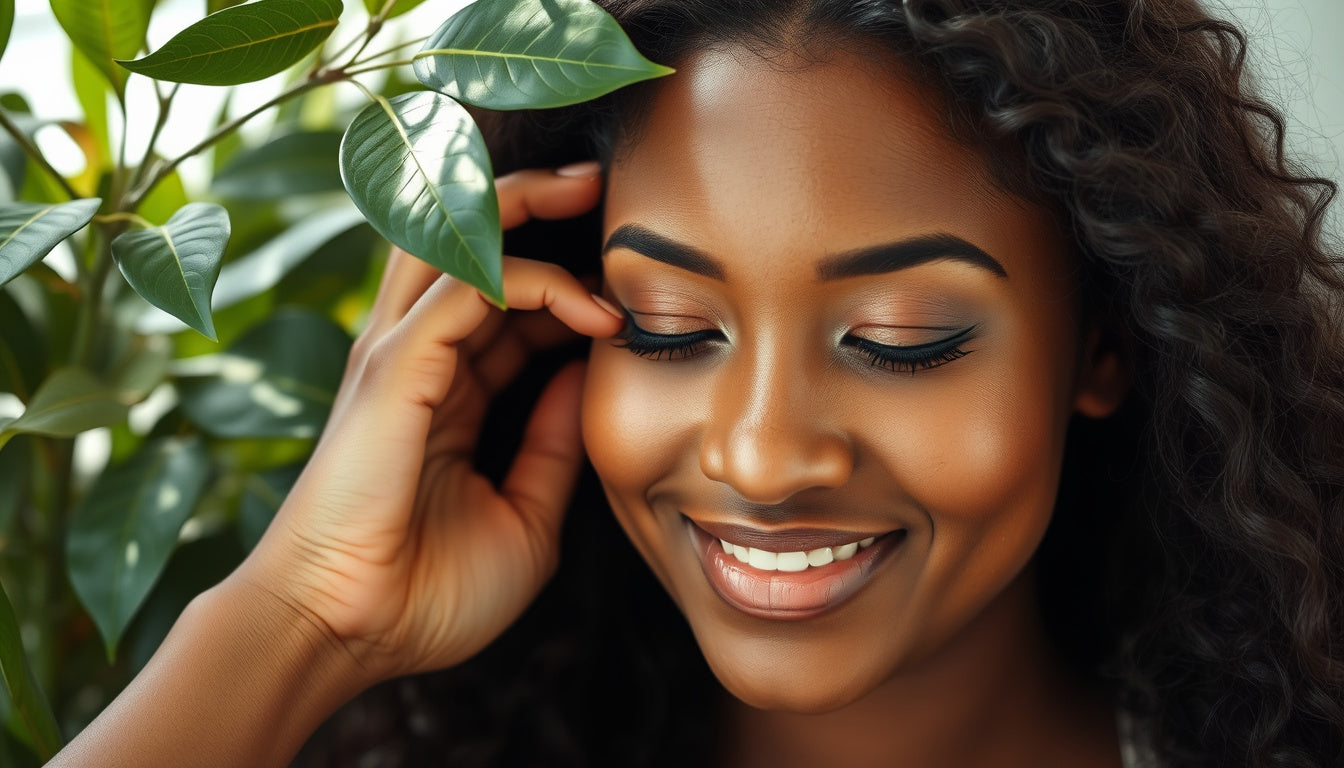
Nurturing Your Locks: Effective Strategies to Combat Post-Pregnancy Hair Loss

Pregnancy is a magical time in a woman’s life. It fills her with hope and joy. New mothers may see new challenges. One challenge is hair loss after birth. This guide shows you ways to stop hair loss and help your hair grow strong again.
Understanding Post-Pregnancy Hair Loss
What is Post-Pregnancy Hair Loss?
Post-pregnancy hair loss starts a few months after giving birth. In pregnancy, high estrogen holds hair in its growing stage. After birth, hormones drop. Hair now falls because it moves to a shedding phase.
Why Does It Happen?
Post-pregnancy hair loss is normal. Many things can cause it:
- • Hormone shifts: A change in hormone levels makes more hair fall.
- • Stress and tiredness: Raising a newborn can make your body feel worn.
- • Lack of nutrients: Your body needs more food during pregnancy and nursing. Missing key nutrients may cause hair to break.
Notable Symptoms of Post-Pregnancy Hair Loss
New moms see these signs:
- More hair in the shower or on your pillow.
- Thinner hair at the crown.
- Hair loss near the hairline.
Many women feel upset by these signs, but most find ways to work through them.
Effective Strategies to Stop Hair Loss After Pregnancy
Here are some simple steps that can help:
1. Maintain a Balanced Diet
Good food builds healthy hair. Aim for:
- • Protein-rich food: Eggs, chicken, and fish give your hair strong building blocks.
- • Healthy fats: Omega-3s found in salmon, flaxseeds, and walnuts feed your scalp.
- • Fruits and vegetables: They hold vitamins like A, C, D, and E that feed hair.
- • Iron and zinc: Spinach, lentils, nuts, and seeds keep hair strong.
2. Hydrate, Hydrate, Hydrate!
Drinking water is key. Aim for 8 to 10 glasses every day. Water keeps your hair and scalp well fed.
3. Gentle Hair Care Practices
Be kind to your hair:
Use a Wide-Tooth Comb
Wet hair is fragile. A wide-tooth comb helps you work through tangles without breakage.
Limit Heat Styling
Avoid too much heat from styling tools. It gives your hair time to get better.
Switch to a Mild Shampoo
A soft, sulfate-free shampoo keeps your scalp happy.
Pro Tip: Try Watermans Grow Me Shampoo. This shampoo has biotin, rosemary, and caffeine. It feeds your scalp and adds body at the roots.
4. Regular Scalp Massages
A light touch on your scalp can make blood flow better. Use your fingertips and massage gently each day.
5. Embrace Supplements Wisely
Some women add vitamins to fill nutritional gaps. Vitamins like B-complex, biotin, and vitamin D help hair. Talk with your doctor before you begin any new supplement.
6. Consult a Professional
If hair loss stays or grows worse, see a dermatologist. They can check your hair and may suggest creams or pills to help.
Did You Know?
- Hormone shifts also change skin and nails during this time.
- Hair may fall for up to one year after birth.
- Tight hairstyles (like tight ponytails or braids) can pull on your hair and cause more loss.
Common Myths About Postpartum Hair Loss
Myth: It’s Permanent
Most women see their hair grow back within one year.
Myth: Only Women with Long Hair Lose Hair
Even short hair can thin during this time.
Frequently Asked Questions
Q1: When will my hair stop falling out after pregnancy?
A: Most women see less hair fall after six months. Full recovery may take up to one year.
Q2: Can post-pregnancy hair loss occur while nursing?
A: Yes. It happens because hormones change.
Q3: Should I wash my hair less often now?
A: Keep your regular washing routine. Use a mild shampoo to keep your hair safe.
Q4: Are there specific hair products that help?
A: Watermans Grow Me Shampoo is one option with natural ingredients that support hair growth.
Q5: How can I help my hair stay healthy during nursing?
A: A balanced diet, good water intake, and gentle care all work well.
Q6: Can stress affect hair loss after birth?
A: Yes. Stress may make hair fall more. Try calm exercises like yoga or meditation.
Q7: Is hair loss normal after birth?
A: Yes, it is a common part of the postpartum cycle.
Q8: What is the best way to boost hair growth after pregnancy?
A: Good food, enough water, gentle care, and a mild shampoo help encourage hair growth.
Q9: Are some hairstyles better during this time?
A: Yes. Looser styles help reduce stress on your hair and scalp.
In Summary
Post-pregnancy hair loss can feel hard. With these steps, you can work to bring your hair back to strength. Stay patient, care for your hair, and give it time to grow back strong.













